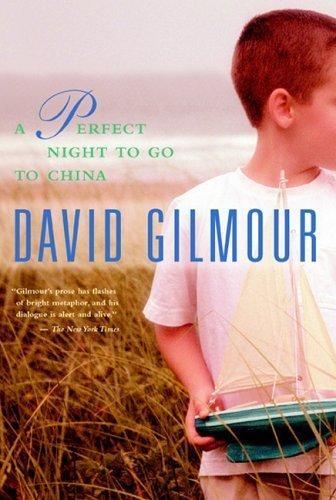
Perfect Night To Go To China
$21.95
$26.95
cover: Paperback
Item#: 9780887621673
Available: 1
On Order: 0
Physical Attributes
Pages: 192
Height: 8.13 in.
Width: 5.50 in.
Thickness: 0.63 in.
Unit weight: 0.75 lb.
Main Description
This astonishing novel - unlike anything Gilmour has ever written before - begins with every parent's worst nightmare: the disappearance of a child. A father makes a casual error of judgement one evening and leaves his six-year-old son alone for fifteen minutes. When he returns the child is gone and three lives are changed forever.
Has the boy been kidnapped? Spirited out of the country? Is he dead? The story that unfolds is told by the novel's narrator, a television host named Roman, who searches for his son through the city and through the underworld of dreams and tries to bring him back.
Pursued by an unshakeable conviction that his son is speaking directly to him, Roman begins to enter a haunting relationship with the missing child and his own conscience. In the meantime, his behaviour becomes increasingly erratic and he is rejected by his grieving and angry wife, eventually fired from his job, and shadowed by a persistent policeman who thinks Roman is hiding the child.
Written in the clear, elegant prose Gilmour is known for, "A Perfect Night to Go to China" is a completely absorbing and original work of fiction. It sets up a harrowing premise and doesn't let up until the last surprising page.
Short Description
David Gilmour sets up a harrowing premise - the disappearance of a child. What follows is a completely absorbing novel that doesn't let up until the last surprising page.
Review Quotes
Gilmour's prose style is spare and darkly funny, jewelled with clever metaphors and precise details. It's enjoyably reminiscent of Raymond Chandler..."A Perfect Night to Go to China" is a compelling example of smart writing about trauma, and an uncomfortably pleasurable read.
Gilmour's prose has flashes of bright metaphor, and his dialogue is alert and alive.
...compulsively readable.... It takes a sharp focus to give us this much in such a brief book. A lesser writer would have given us a leaden brick.... The amazing thing is that it is both a sleek, fast read and a compulsively devastating personal tragedy. When the story is this affecting, the result is a luminous reading experience, the kind we all crave - the kind we sometimes find, if we're lucky, in our favourite authors. I don't think it's going too far to mention such names as Camus, Graham Greene, Elmore Leonard and even Calvino...they all have style, intelligence and strength. Gilmour is one of the best writers we have. His new novel is exactly the kind of thing I'd love to see more of in Canadian writing. It's elegantly written without wasting time on irrelevant detail. It is firmly plotted. It is paced for speed. Something actually happens. I'm saving this book to share with my son. You might want to remember this one come Father's Day.
..."A Perfect Night" is unlike anything Gilmour has written before, and all the better for it.
David Gilmour has created a short, powerful book that is profoundly emotive.
...one of the most refreshing, moving, and supple works of fiction written since the 21st century began...
Biographical Note
David Gilmour is a novelist who has earned critical praise from literary figures as diverse as William Burroughs and Northrop Frye, and from publications as different as the New York Times to People magazine. The author of six novels, including A Perfect Night to Go to China, which won the 2005 Governor Generals Award for Fiction, he also hosted the award-winning Gilmour on the Arts. His books have been translated into eleven languages. He lives in Toronto with his wife Tina Gladstone.
Excerpt from Text
I went out again that night....
I looked in garden sheds, in parking lots, in backyards. I whispered his name down dark stairwells. I said, "Simon, are you there?" A dog chased me from a back porch, snarling, pulling on a chain. A drunk staggered out of the darkness at me. I peered into an abandoned car. Nothing, not even a sensation. I tried to feel him, not think him, but I kept wondering, Where would I take him? Fifty-eight pounds. Where would you go? It had to be nearby. But when I stopped in front of a house or started up a driveway, I could feel a sort of invisible door close...
He was slipping away from me. I said, "Don't go, Simon. Don't go."
